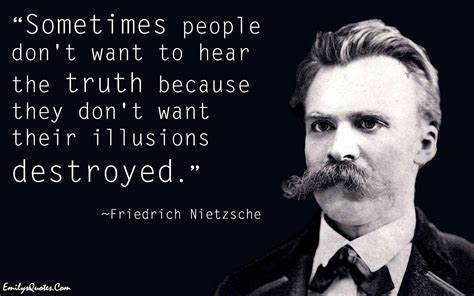Autism, the truth at work
“You don’t understand me!” is one of my daughter’s favourite phrases when she doesn’t get her own way. While, for most people, it is more likely that my daughter’s wishes were understood perfectly well, they were just denied, for me it is true that I don’t understand her. In fact, I don’t really understand anyone apart from myself, and even that is debatable.
It is hard to describe what it is like to be autistic because I don’t know any other way to be. However, for International Men’s Day 2020, I wanted to try and describe being autistic and how that impacts some of my interactions at work. As always, the views here are entirely subjective to myself and not meant as a view on autism more generally.

Where better to start than the truth. One of my favourite film quotes of all time is Jack Nicholson shouting at Tom Cruise, “you can’t handle the truth”. Jack was quite right. “Honesty is the best policy,” is, in fact, complete rubbish. Most people, it transpires, do not want honesty but want to receive encouragement and praise. The question, “do you like my new haircut?” actually means “please say something nice about my new haircut.” As such, answers like “no, it shows the grey more and I think that ages you” can be true but are not welcomed.
It is strange to think of honesty as a fault but, in my experience, autistic people tend to answer the question posed directly and honestly irrespective of the consequences. A psychological study showed that the average individual lies more than 100 times a day (most of these are presumably in response to ‘haircut’ questions like the one posed above). While two strangers talking would tell an average of 2.92 lies each within 10 minutes of meeting each other. To me, this is complete madness.

One of the more common autistic traits is emotional blindness (or alexithymia if you want its medical name), which affects approximately 50% of people with an autistic spectrum disorder. Emotional blindness is the inability for a person to process their own emotions. It leads to reduced emotional awareness, social interaction issues and ineffective emotional responses. I like the world black and white, I like knowing what is expected of me and the response I will receive for meeting this expectation. Once you throw in grey (one shade is enough, no need for 50), I become very confused. At its most extreme, and it’s only happened a few times, my rational brain ‘shuts down’ and I become dissociative where I, apparently, function and interact normally but I have no recollection of the time. For someone who is usually praised for having a superb memory, dissociative episodes are truly terrifying.
Empathy and ‘social filtering’ are also traits that many autistic people lack. Changing the content of your discussion for your audience is an empathetic response, it comes from understanding what your audience do and don’t want to hear and what is ‘acceptable’ in any given circumstance. It’s not that I don’t understand emotions like anger or sadness, it’s that I cannot see how someone could be angry or sad if the same situation would not make me angry or sad. Take football as an example, if my team, Crystal Palace, lose, which they do regularly, some people are devastated, it ruins their entire weekend (if you get like this it is probably best not to support Crystal Palace), for me there is mild disappointment. I cannot understand how someone can be angry or sad about the loss of a football match.

Putting these three traits together: honesty, emotional blindness and lack of empathy is a volatile mixture when with family and close friends. At work it can be a nightmare. Take this real life example of a discussion I had with a colleague in an open plan office (you’ll guess which side of this conversation I was):
“You’re so lucky, you can eat what you want and never seem to put on fat”
“Well I am male and therefore I do have less body fat as a general rule anyway”
“Why do men have less body fat than women, it’s not fair”
“Because women have breasts”
Now, to my mind, I have been posed a question to which I have applied a correct answer. All good right? Apparently not. I was later made aware that it is not appropriate to mention breasts at work, even if done so objectively and in an accurate, scientific way.

“To be blind is not miserable; not to be able to bear blindness, that is miserable”. John Milton, who famously wrote Paradise Lost, was, I think, referring to ocular blindness rather than emotional blindness but the saying holds true for both. Over the years I have built up a series of “learned responses”, which are akin to computer programs that give a regulated response to a given scenario. So, if someone asks me about their haircut I “know” they are actually asking for something positive to be said and if something positive can’t be said then it is best to say nothing. These learned behaviours extend to all aspects of my life.
My entire life is very regulated, I get up at roughly the same time every day (5:30), I go to the gym at the same time (6:30), I eat my meals at fairly fixed times, I go to bed at about the same time etc. By keeping my life regulated, there is less grey and therefore less risk of confusion and mental difficulties.

One risk for people like me is alcohol. As you might imagine, when a brain is “overheating” it is a natural temptation to seek something that will relax and calm you. The most common relaxant, at least in the City, is alcohol. However, drinking alcohol impairs my social learned behaviours. Now, if I am with close friends and family this is not usually a problem as they know me and therefore there is little risk of me being put in a position where my autism is a detriment but in a work context that is often not the case. Being surrounded by people you know only passing well or, worse, people you are trying to impress, is mentally stressful for anyone but for an autistic person it almost constantly throws you into a difficult state of questioning what to say/not to say and how to act. If you were to have impaired social learned behaviour, because, perhaps, you had had a couple of pints, the chances are that your brain would become so anxious that you are at risk of a mental health ‘episode’.
In work I am very lucky, I have worked with my core team for a number of years but it is always a learning curve for all of us. My boss first started working with me in 2004 yet we still talk most days about my struggles and how what I do can be adapted to better protect my mental health.
This is but a tiny insight into one autistic mind. I have not delved into other areas such as rigid thinking, sensory issues (I feel physically sick if my body is touching sand) and self-critical thinking because it is too much for one article. The overriding message I am trying to convey is that, yes, autistic people think very differently to neuro-typical people, we might well say things that you consider offensive or inappropriate but we don’t do that knowingly (or, at least I hope we don’t) and, finally, please do not ask us whether your bum looks big in an outfit unless you want an honest answer.